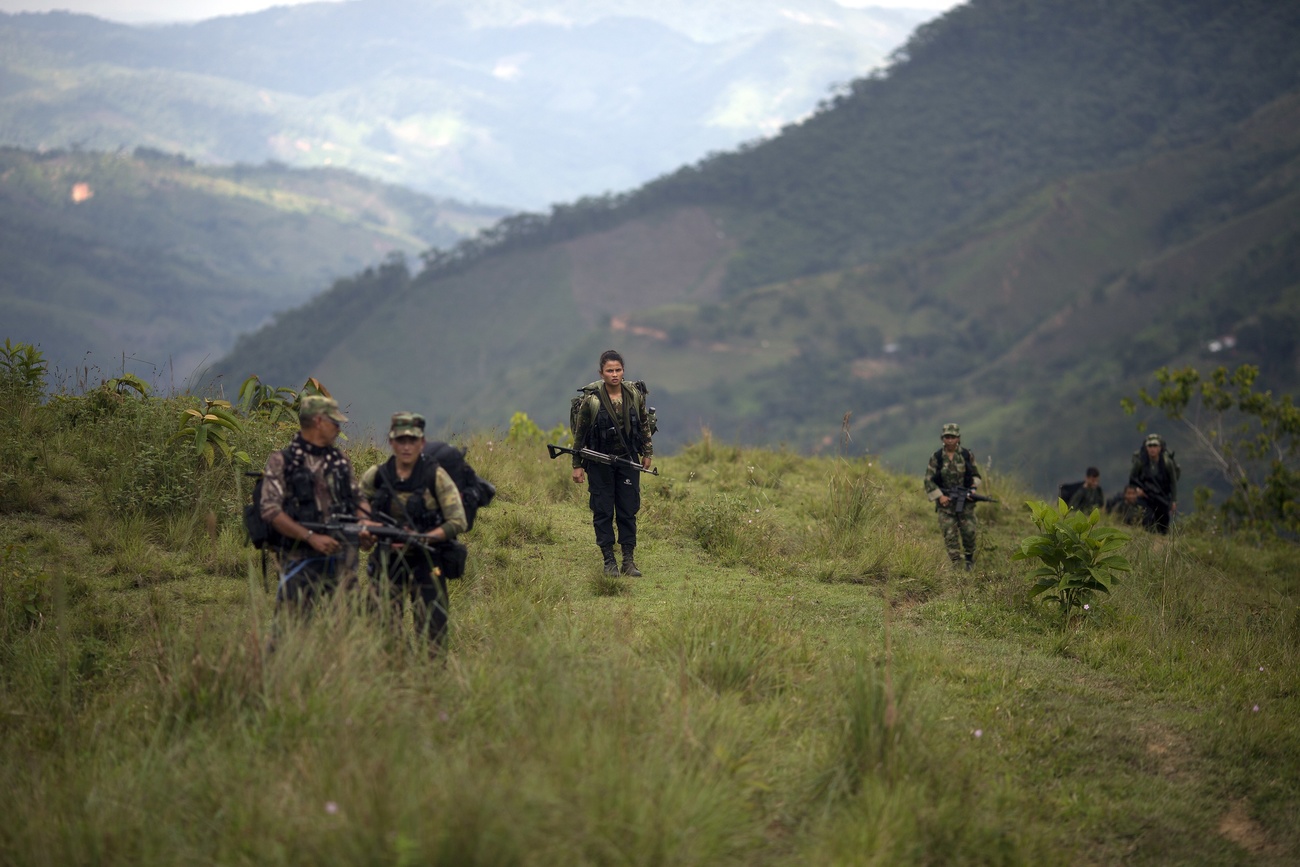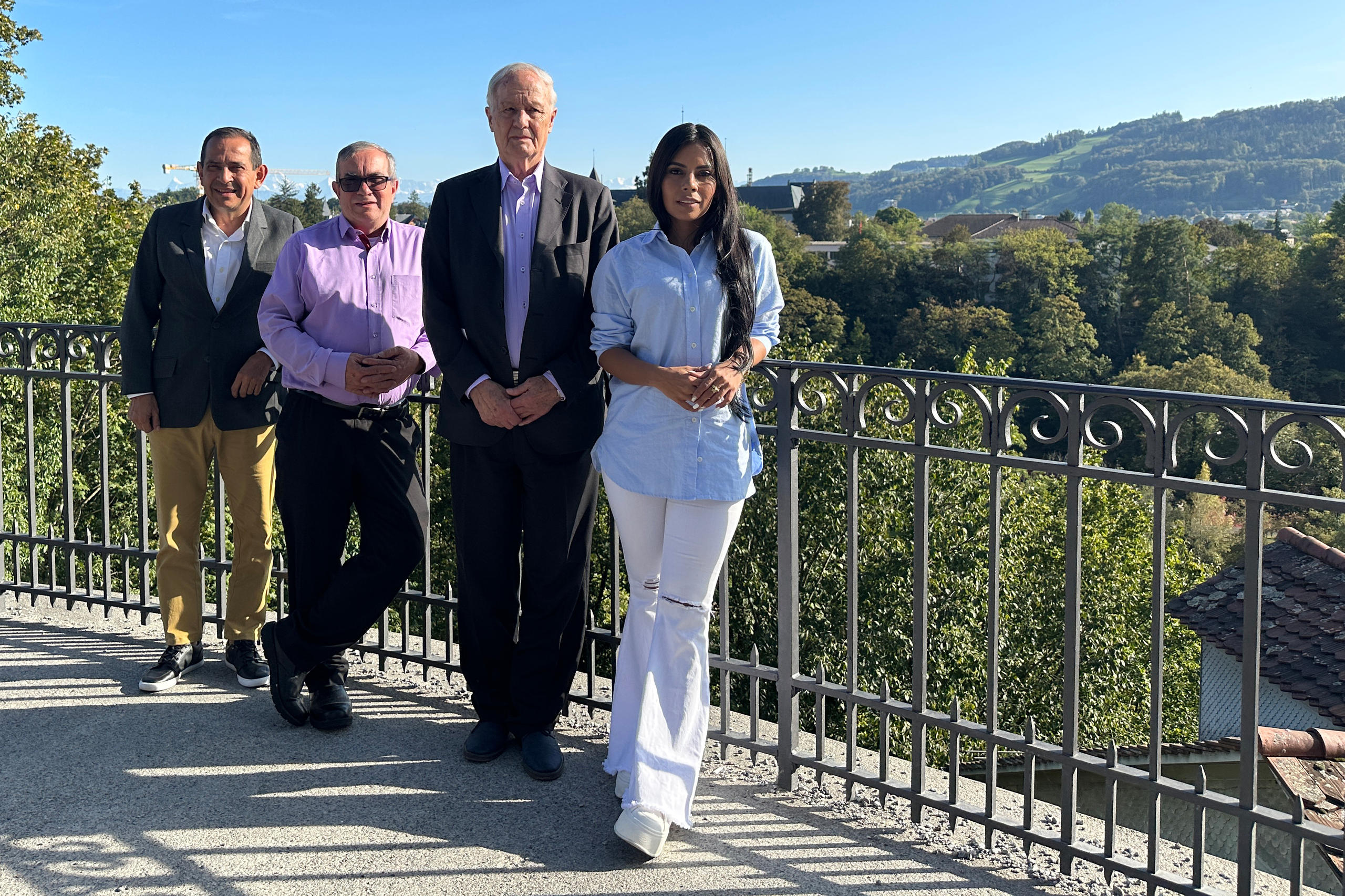
Switzerland supports Colombia peace talks

Switzerland will support the new peace process in Colombia as a guarantor country, alongside Ireland, Norway and Venezuela in particular, the foreign ministry said on Tuesday. It will be present during the negotiations and will provide political support and technical assistance.
The Federal Department of Foreign Affairs welcomes the opening of peace negotiations on Monday between the Colombian authorities and the rebel group Estado Mayor Central de las FARC-EP (EMC).

More
Swiss successes, risks and failures mediating peace abroad
Active in Colombia for many years, Switzerland has assumed, at the request of both parties, an official mandate as guarantor country of the negotiations.
The creation of the EMC dates back to the conclusion of the 2016 peace agreement that part of the rebels of the Revolutionary Armed Forces of Colombia (FARC) had refused to sign.
When negotiations opened, both sides signed a ceasefire agreement with immediate effect. The latter, provisionally decreed for three months, aims to improve the humanitarian situation in the regions where the EMC is active.
The Colombian government aims, as part of its peace policy, to involve all armed groups, if possible, in the establishment of total peace.

More
Peace and reconciliation: how Colombia wants to put the war behind it
Since November 2022, Switzerland has also been a member of the group supporting the peace talks with the National Liberation Army (ELN). It provides advice on issues such as compliance with the ceasefire, participation of society or the protection of the civilian population.
Colombia has been marked by armed conflicts for several decades. According to estimates, they have caused more than 200,000 victims so far, mostly civilians, and displaced 8 million people.
In 2016, a peace agreement was reached between the Colombian government and the FARC-EP. However, certain regions of the country subsequently experienced an intensification of fighting involving other armed groups, which complicates the implementation of the peace agreement, in particular the development of rural regions affected by violence.
This news story has been written and carefully fact-checked by an external editorial team. At SWI swissinfo.ch we select the most relevant news for an international audience and use automatic translation tools such as DeepL to translate it into English. Providing you with automatically translated news gives us the time to write more in-depth articles. You can find them here.
If you want to know more about how we work, have a look here, and if you have feedback on this news story please write to english@swissinfo.ch.

In compliance with the JTI standards
More: SWI swissinfo.ch certified by the Journalism Trust Initiative





























You can find an overview of ongoing debates with our journalists here . Please join us!
If you want to start a conversation about a topic raised in this article or want to report factual errors, email us at english@swissinfo.ch.